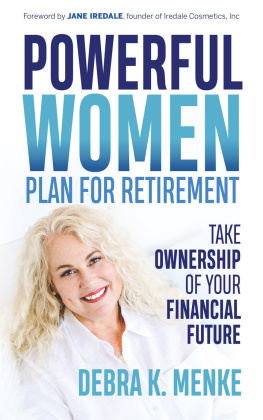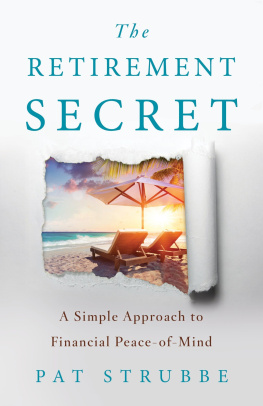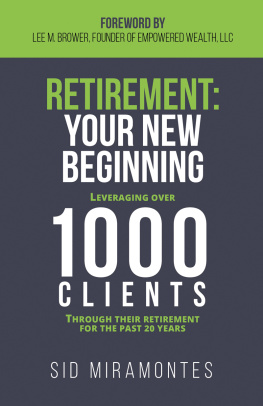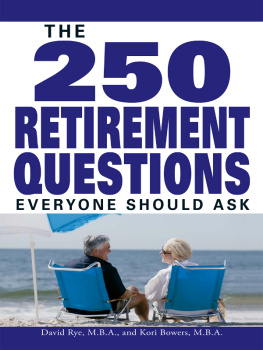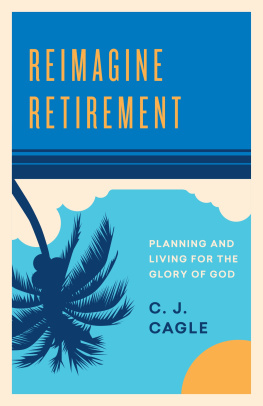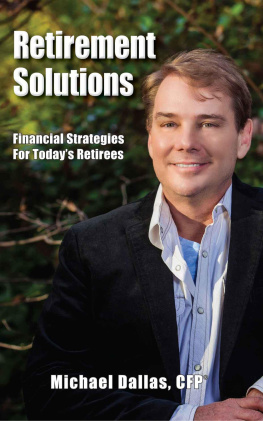Copyright 2011 Tina Di Vito
All rights reserved. No part of this work covered by the copyright herein may be reproduced or used in any form or by any meansgraphic, electronic or mechanical without the prior written permission of the publisher. Any request for photocopying, recording, taping or information storage and retrieval systems of any part of this book shall be directed in writing to Th e Canadian Copyright Licensing Agency (Access Copyright). For an Access Copyright license, visit www.accesscopyright.ca or call toll free 1-800-893-5777.
Care has been taken to trace ownership of copyright material contained in this book. Th e publisher will gladly receive any information that will enable them to rectify any reference or credit line in subsequent editions.
While the publisher and author have used their best eff orts in preparing this book, they make no representations or warranties with respect to the accuracy or completeness of the contents of this book and specifi cally disclaim any implied warranties of merchantability or fi tness for a particular purpose. No warranty may be created or extended by sales representatives or written sales materials. Th e advice and strategies contained herein may not be suitable for your situation. You should consult with a professional where appropriate. Neither the publisher nor author shall be liable for any loss of profi t or any other commercial damages, including but not limited to special, incidental, consequential, or other damages.
Library and Archives Canada Cataloguing in Publication
Di Vito, Tina
52 ways to wreck your retirement : and how to rescue it / Tina Di Vito.
Includes index.
Issued also in electronic formats.
ISBN 978-1-118-07609-5
1. RetirementCanadaPlanning. 2. Retirement incomeCanadaPlanning. 3. Finance, PersonalCanada. 4. RetirementPlanning. I. Title. II. Title: Fift y-two ways to wreck your retirement.
HG179.D58 2011 332.0240140971 C2011-901788-1
Production Credits
Cover Design: Adrian So
Cover Image Credit: iStockphoto
Composition: Thomson Digital
Editorial Credits
Executive Editor: Karen Milner
Production Editor: Pauline Ricablanca
John Wiley & Sons Canada, Ltd.
6045 Freemont Blvd.
Mississauga, Ontario
L5R 4J3
www.wiley.com
Introduction
Why a book about retirement? There are so many other, more interesting, things to read about. How about a book on ways to make millions in the stock market? For this one simple reason I'm constantly hearing that Canadians haven't saved enough money, that they are not prepared for retirement or, worse, that they want to retire but they will never be able to. In order to have a successful retirement, you need to take action and make things happen. We spend one-third of our lives growing up and getting smart, one-third of our lives working and buying things, and one-third of our lives... living off the money and other assets we've accumulated during our working years . In essence, everything we do in the first two-thirds of our lives will affect the last one-third.
Canadians can achieve their dreams and to do that, they need some simple retirement strategies to help them transition into retirement with confidence and clarity. If retirement only lasted a few years, then you could get away with not having a retirement plan. But what if retirement were to last 30 years? Well, then we would need to pay some attention to planning for it rather than leaving it to chance. The way I see it, if you hope to have some control over this part of your life, you need to have a plan.
Too bad that last third of our life is called retirement. If you look in the dictionary for the definition of the word retirement , you will find words such as withdrawal, privacy, seclusion, and overall end of usefulness it is not all that appealing. Is that what the rest of our lives will be about? No wonder so many people prefer not to think about it until the last minute. But retirement today is not the same as it was years ago. More and more are referring to this stage of life as the New Retirement a new phrase to represent a new attitude, an active lifestyle, and a positive outlook on what the future could be, rather than the end of work, end of power, end of usefulness, end of life. These days retirement can mean slowing down and not working as much, working for only part of the year, focusing on a hobby, or volunteering. That's why some people say they'll never retire in the traditional sense of the word they will always be actively doing something it just might not be the same full-time job or career they've had during their full-time work years. Throughout this book I use the word retirement simply for lack of a better word, or lack of a word that is as well known as the word retirement . When I use the word retirement , I am referring to a time when full-time work for full-time pay ends, and pensions and withdrawals from savings begin.
Planning for retirement is not especially difficult; you just need to know where to start. And that's where we run into problems, because when it comes to personal finance, sometimes we just don't know where to start and, as a result, we procrastinate. So rather than starting with personal finances, start somewhere fun. As you read through the chapters I want you to think about your retirement life. I want you to visualize what's around you, what you'll be doing, and imagine how you will be feeling when you have the freedom to do whatever you want.
The most important thing to keep in mind is that retirement planning isn't something that you do at a specific point in time or at a specific age. In fact, we are all affecting our retirement plans every day with every decision we make or don't make. You don't have to be retirement age, or even near it, to be affecting your quality of life in retirement. Everything we do or don't do in the second third of our lives in particular affects our retirement. For instance, deciding to buy a new car versus a used one, or accumulating large amounts of debt, will impact how much money is left over to set aside for retirement.
There are many simple things that we do or don't do that will impact our eventual retirement life. Even during retirement, there are a host of things that can derail even the best laid retirement plans. Here are some retirement risks to think about.
retirement risks:
Longevity risk this is the chance that we'll live a long retirement. Sounds positive, doesn't it? But in reality, living a long retirement means that our savings will need to last a long time.
Inflation inflation means that the price of goods goes up over time. While we're working, pay increases smooth over some of the inflation risk, but during what can be a very long retirement, inflation will erode our purchasing power, meaning our retirement nest egg will need to be even bigger to compensate.
Health risks remember what I said about living a long retirement? The longer we live, the higher the chance that we'll need specialized health care at some point. Even though many medical costs are covered by provincial medical programs, many of the costs associated with long-term care are not.
Investment risk (market risk) no one can predict the stock markets. A few bad years just as you are entering retirement and making withdrawals from your savings can mean that your portfolio will never recover, even though the market does.
Spending risk as you enter retirement with limited resources, how you spend your money will impact how long it will last. If you spend too quickly, the long-term effect on your nest egg can be devastating.
Saving risk if you don't know how much you'll need in retirement or where your retirement income will come from, you run the risk of not saving enough: under-saving. This is one of the main reasons those closest to retirement often decide to work for a few extra years.


